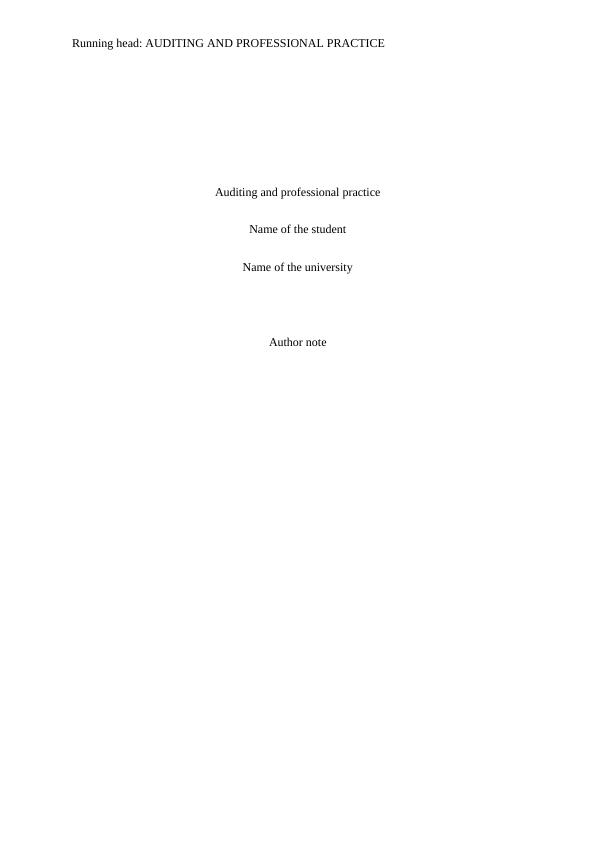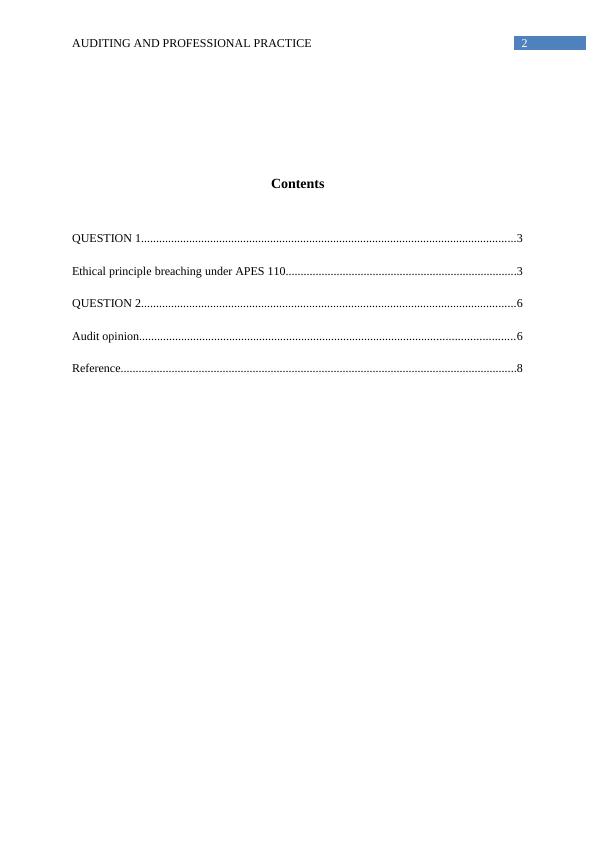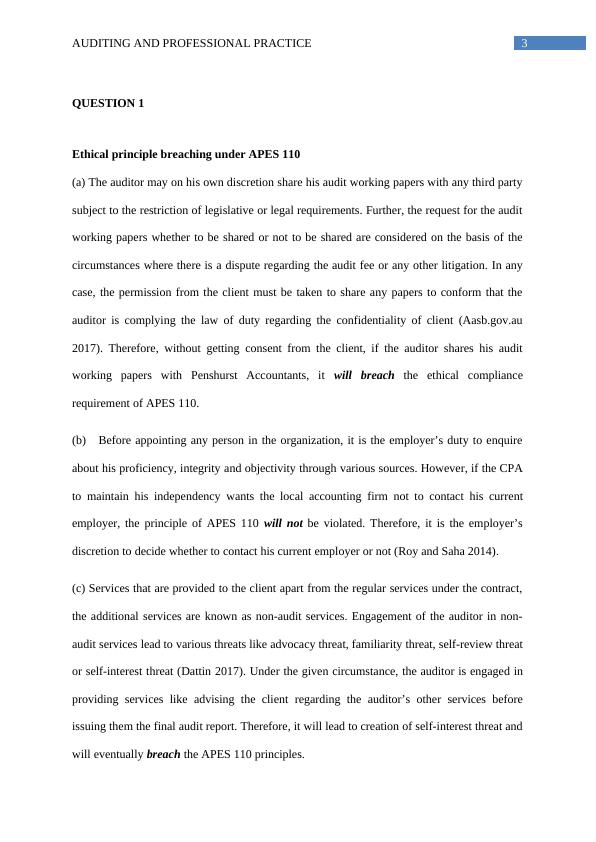Auditing and Professional Practice
Added on 2020-03-07
9 Pages1771 Words30 Views
Running head: AUDITING AND PROFESSIONAL PRACTICEAuditing and professional practiceName of the studentName of the universityAuthor note

2AUDITING AND PROFESSIONAL PRACTICEContentsQUESTION 1.............................................................................................................................3Ethical principle breaching under APES 110.............................................................................3QUESTION 2.............................................................................................................................6Audit opinion.............................................................................................................................6Reference....................................................................................................................................8

3AUDITING AND PROFESSIONAL PRACTICEQUESTION 1Ethical principle breaching under APES 110(a) The auditor may on his own discretion share his audit working papers with any third partysubject to the restriction of legislative or legal requirements. Further, the request for the auditworking papers whether to be shared or not to be shared are considered on the basis of thecircumstances where there is a dispute regarding the audit fee or any other litigation. In anycase, the permission from the client must be taken to share any papers to conform that theauditor is complying the law of duty regarding the confidentiality of client (Aasb.gov.au2017). Therefore, without getting consent from the client, if the auditor shares his auditworking papers with Penshurst Accountants, it will breach the ethical compliancerequirement of APES 110.(b) Before appointing any person in the organization, it is the employer’s duty to enquireabout his proficiency, integrity and objectivity through various sources. However, if the CPAto maintain his independency wants the local accounting firm not to contact his currentemployer, the principle of APES 110 will not be violated. Therefore, it is the employer’sdiscretion to decide whether to contact his current employer or not (Roy and Saha 2014). (c) Services that are provided to the client apart from the regular services under the contract,the additional services are known as non-audit services. Engagement of the auditor in non-audit services lead to various threats like advocacy threat, familiarity threat, self-review threator self-interest threat (Dattin 2017). Under the given circumstance, the auditor is engaged inproviding services like advising the client regarding the auditor’s other services beforeissuing them the final audit report. Therefore, it will lead to creation of self-interest threat andwill eventually breach the APES 110 principles.

End of preview
Want to access all the pages? Upload your documents or become a member.
Related Documents
Auditing and Professional Practice | Assignmentlg...
|10
|1934
|85
Auditing Theory and Practice Assignment Samplelg...
|12
|2127
|172
Auditing Assignment | Mortdate Accounting Firmlg...
|9
|1655
|68
Auditing and Professional Practicelg...
|11
|2003
|281
Ethical Principles and Audit Report Contentslg...
|4
|1056
|490
MAA303 - Audit and Assurancelg...
|5
|753
|72